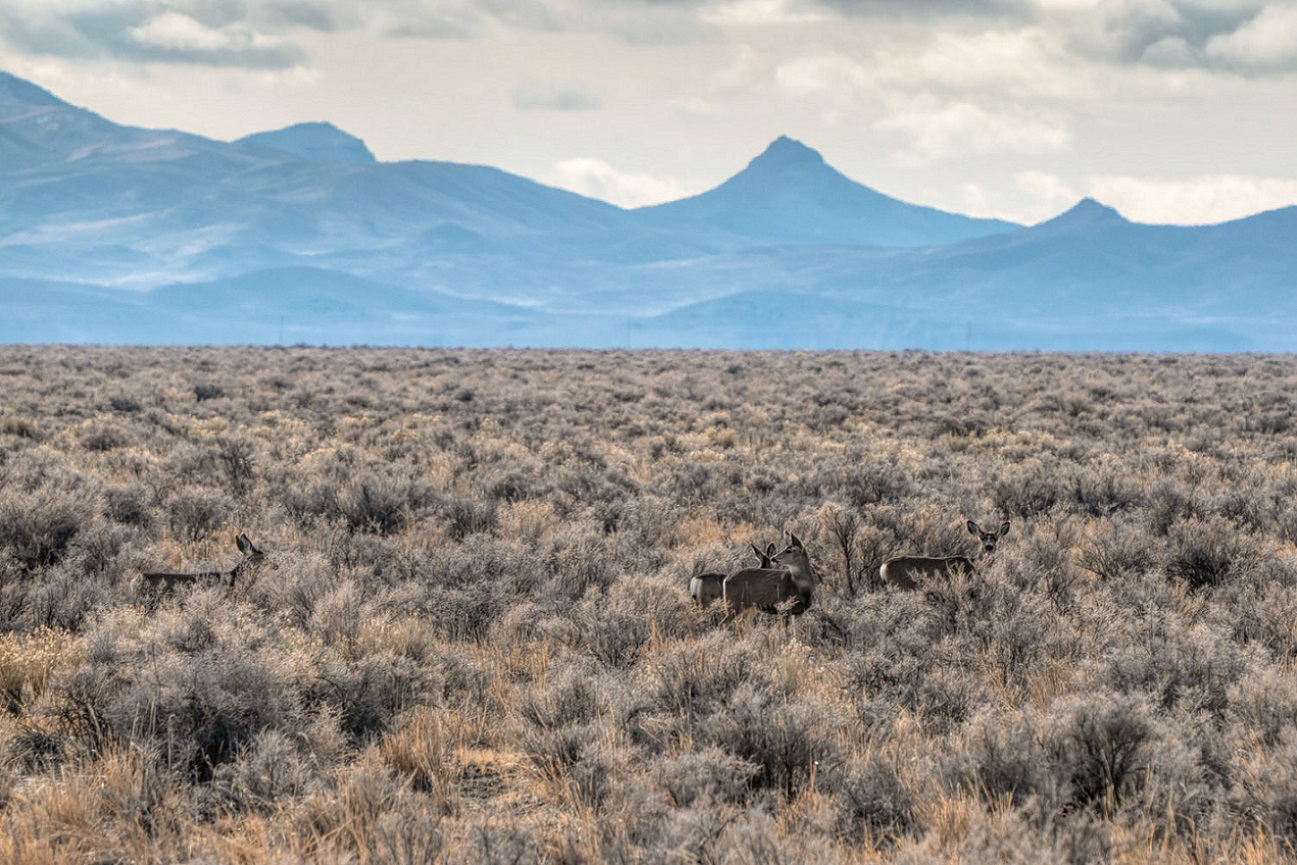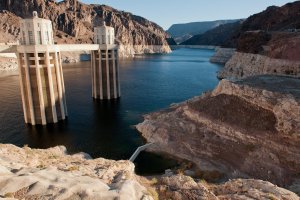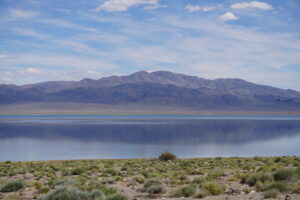5:00
News Story
Court asked to vacate NV lithium mine approval after precedent-setting case
The future of what may potentially become the largest lithium mine in the United States now rests on whether a law enacted in 1872 was correctly implemented when the mine was approved by federal land managers in 2021.
Lawyers representing a coalition of environmentalists, tribes, and ranchers urged a U.S. appeals court on Tuesday to vacate the approval of a Nevada lithium mine at Thacker Pass near the Oregon border, which they argue should be halted for violating federal mining law.
Early this year, U.S district judge Miranda M. Du in Reno concluded that the Bureau of Land Management violated federal law when it approved Lithium Americas plan to bury 1,300 acres of public land under waste rock without determining the company’s mining rights to those lands. However, she did not vacate federal approval of the mine.
“This is the first time in public land history that we have a major project violating a number of provisions that’s allowed to go forward,” Roger Flynn, the director of the Colorado-based Western Mining Action Project, told a three-judge panel of the 9th Circuit Court of Appeals during oral arguments on Tuesday.
“This is a dangerous road to go on,” he continued. “The only check on government authority is to vacate an illegal decision.”
Lawyers representing opponents of the mine said Du erred when she allowed construction on the project to continue despite her conclusion that federal land managers had violated federal law when they approved a permit to dump waste rock on federal land without valuable minerals.
Du’s decision rested on a 2022 U.S. appeals court ruling that found while federal law allows mining companies to dig for valuable minerals on federal land, it does not necessarily allow use of federal land without valuable metals for related purposes – such as waste rock disposal or running power lines.
That ruling against an Arizona copper mine, now known – infamously among the mining industry and its supporters – as the Rosemont decision, has had far reaching ramifications for mining sites in Nevada, including a planned molybdenum mine by Nevada-based developer Eureka Moly LLC.
Approval of the molybdenum mine was vacated by a U.S district judge in March after he ruled the mining developer did not have the right to dump waste rock on federal land without valuable mineral deposits, citing the Rosemont decision that blocked the Arizona mine.
Further construction of the Thacker Pass lithium mine may now depend on whether the San Francisco-based 9th Circuit Court of Appeals believes the Rosemont decision means the court should vacate approval of the entire project.
Last month, a federal review found that much of the federal land claimed by Lithium Americas did have evidence of mineralization, however, about 80 acres did not, making the use of those lands as a waste dump invalid. The plan of operations for the mine includes about 150 acres for “exploration-related disturbances” within the project area, a sizable chunk of land.
In response Lithium Americas said they plan on using the mine pit itself as a site for waste rock through backfilling, according to the review. The mining company was given essentially limitless time to come up with a plan of action for the remaining waste rock.
Lawyers representing BLM and Lithium Americas argued that the Rosemont decision is narrow in scope and should not be used to justify vacating the mine’s approval, adding that the agency already addressed violations through their federal review process last month.
“With the exception of one narrow issue… the district court correctly concluded that BLM met all its statutory and regulatory obligations in approving the mine,” Amelia Yowell, representing BLM, told the court Tuesday.
Flynn, the director of the Colorado-based Western Mining Action Project, argued the additional documentation of mineralization on federal lands the company claimed for waste rock disposal does not change the fact that BLM erroneously approved mining claims where no valuable minerals existed.
“The district court made a very serious error here in not vacating this decision in the face of massive environmental damage and the serious errors that the BLM now admits happened here,” Flynn said.
Flynn said the lower court did not factor in the damage to the environment the mine would cause when allowing construction to continue. He argued the seriousness of the BLM error and the disruptive consequences of the mine means approval of the project should have been vacated under case law.
Lithium from the site would be extracted with a technique using sulfuric acid to extract the metal from clay and would create more than 350 million cubic yards of clay mining waste over four decades.
The greater sage-grouse, an imperiled ground-nesting bird, would lose thousands of acres of brood-rearing and winter habitat. The project would also degrade thousands of acres of pronghorn antelope range and sever two critical pronghorn movement corridors, according to an environmental review.
Opponents of the Thacker Pass mine argue the environmental review for the mine was rushed, saying what is normally a multiyear process was completed in less than a year.
The Thacker Pass lithium mine was approved by federal land managers five days before the end of Donald Trump’s presidency. It was one of several projects fast-tracked in the last days of the Trump administration to advance energy and mining projects on public land.
The three-judge panel also heard from Rick Eichstaed who represented the Burns Paiute Tribe Tuesday.
He argued that BLM failed to make a “good faith effort” to identify all tribes who attach religious and cultural significance to Thacker Pass, sidestepping meaningful government-to-government consultation with tribes that are connected to Thacker Pass, including the Burns Paiute Tribe.
“There is no dispute to the religious and cultural significance of Thacker Pass to the tribe,” Eichstaed said. “In this case the Burns Paiute Tribe was never consulted in regards to the Thacker Pass project.
Our stories may be republished online or in print under Creative Commons license CC BY-NC-ND 4.0. We ask that you edit only for style or to shorten, provide proper attribution and link to our website. AP and Getty images may not be republished. Please see our republishing guidelines for use of any other photos and graphics.




